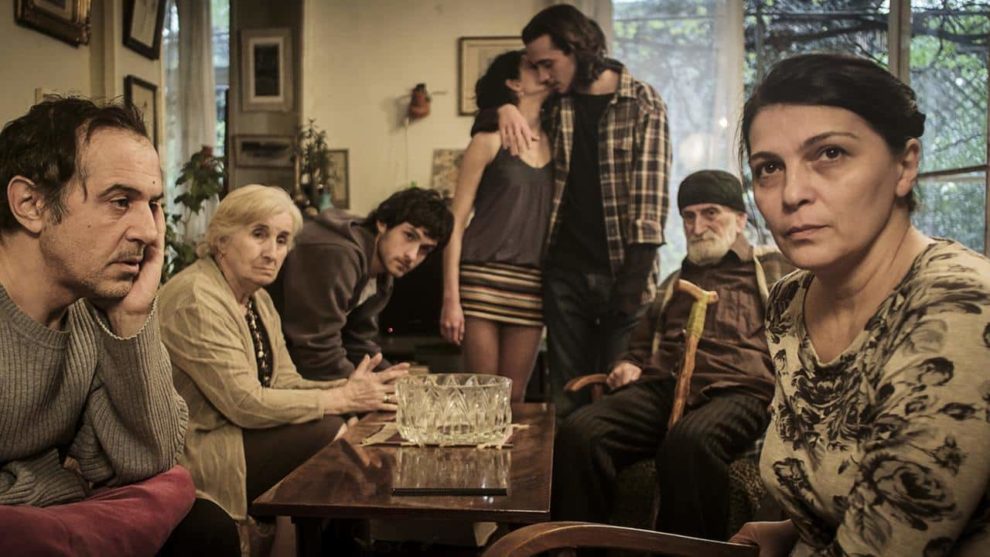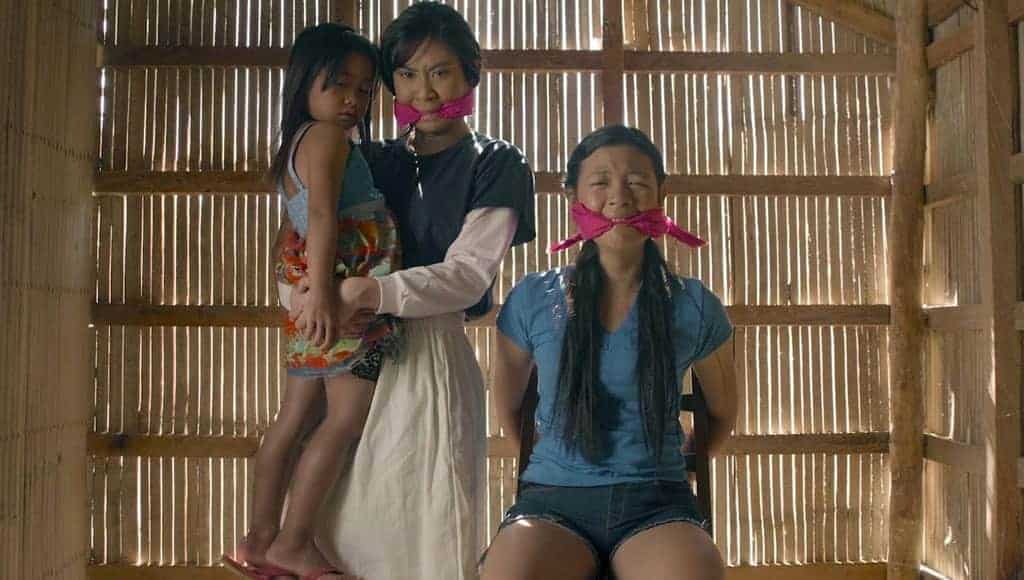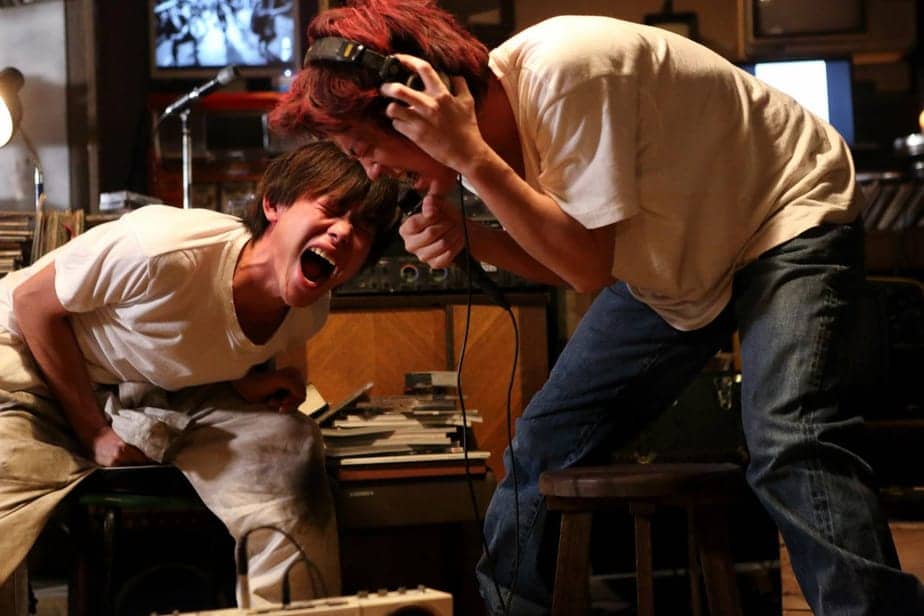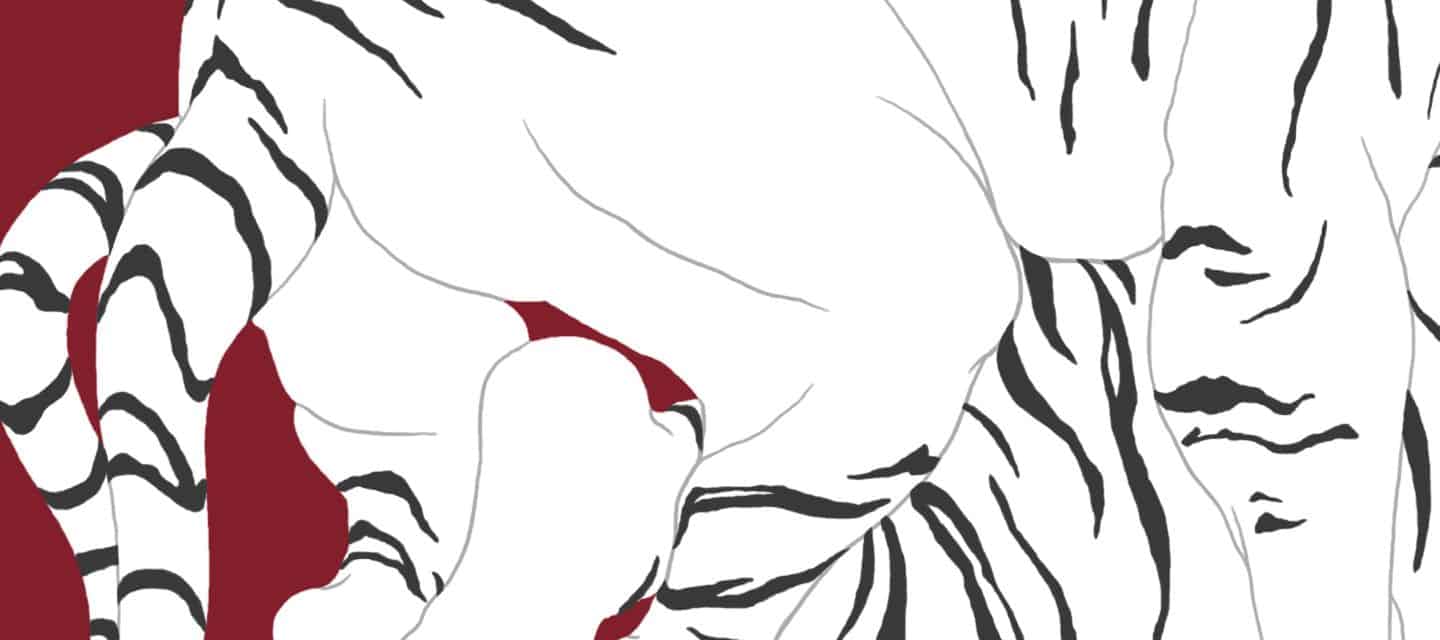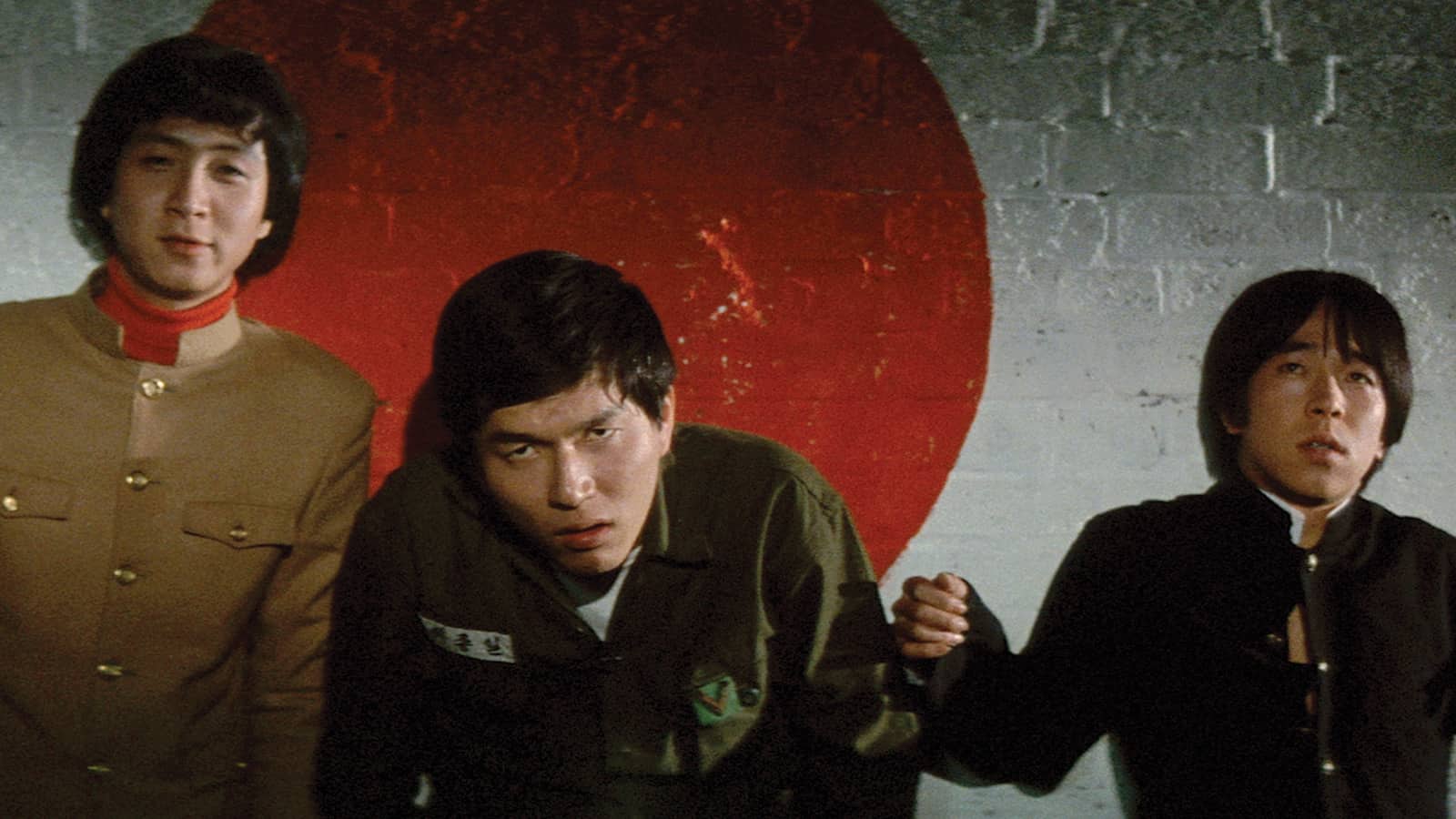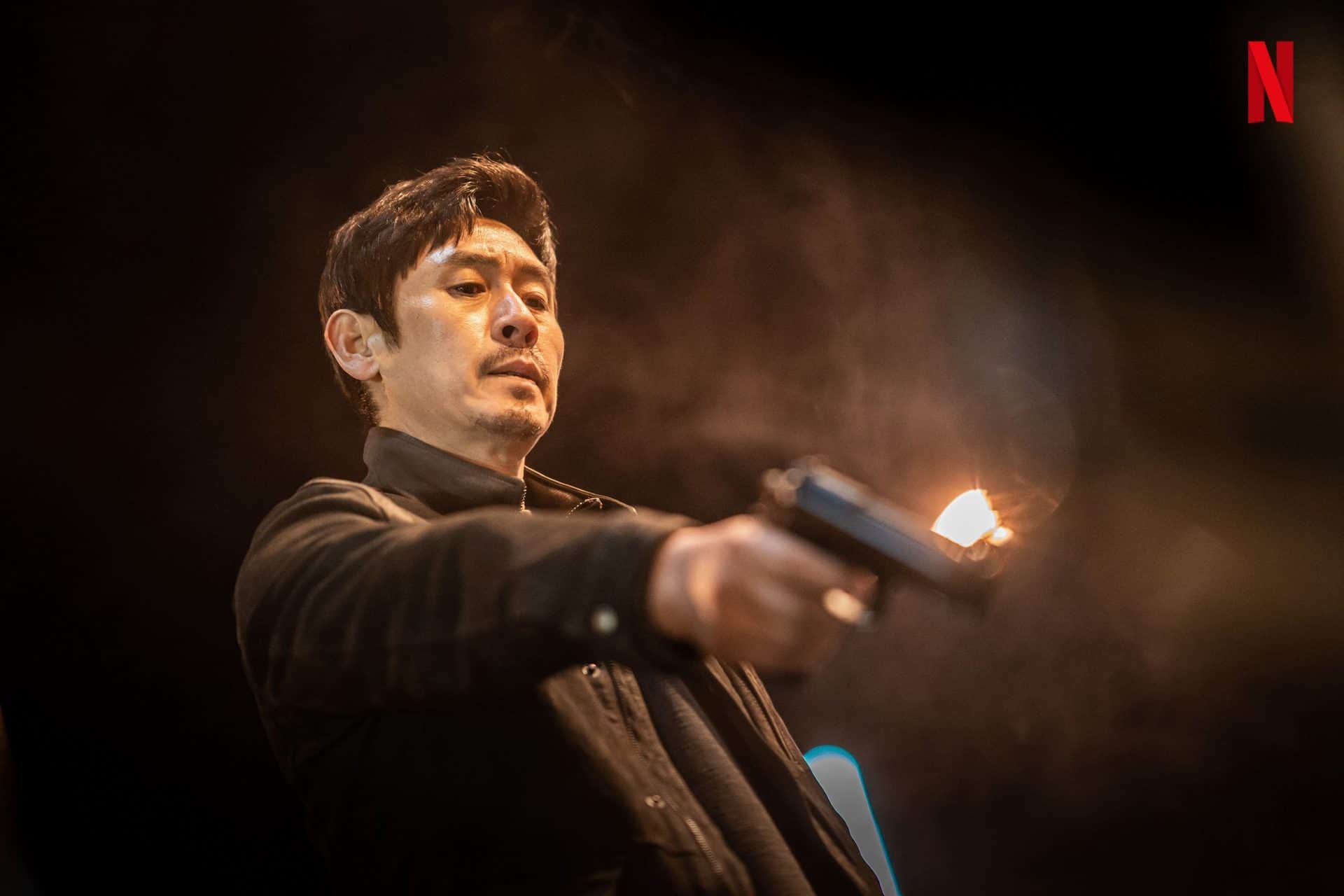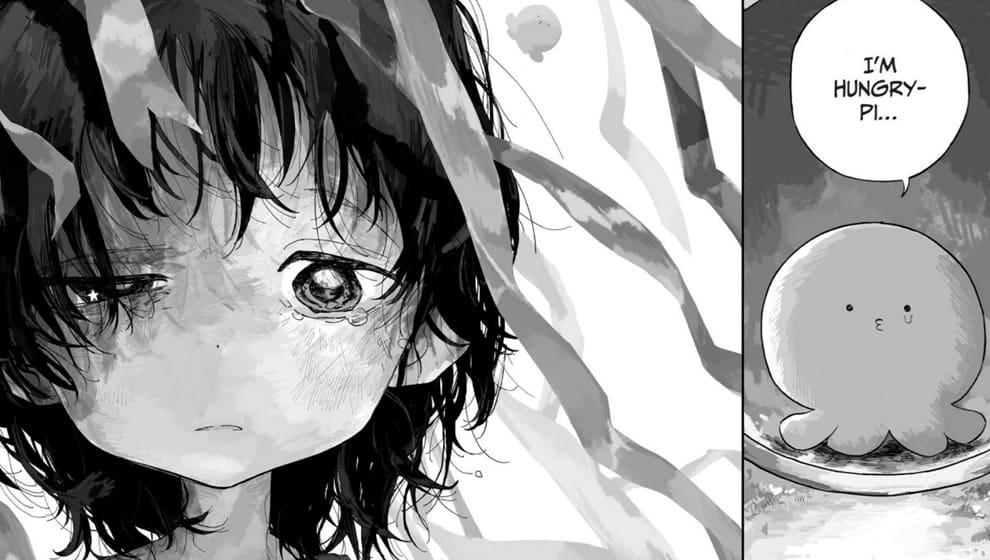When Netflix recommendation listed this work under ‘Hidden gems for you', I took notice as I have been fortunate with this segment in the past. Though the title sounded cheesy, I was hoping that it was a play on words before revealing what is behind the curtain and I was not disappointed.
Manana is a daughter/wife/mother/teacher in her fifties who lives with the rest of her family in an apartment in a Georgian town. The quarters are just big enough for its seven inhabitants to call it home, but not large enough for peaceful coexistence. It is her birthday and friends and family gather to celebrate and wish her well, even when that is not Manana wants. The next day she informs her family that he has found another apartment in a different district and will be moving for good, as they are all capable of taking care of themselves. The family is more confused than hurt and tries to pull all the stops to prevent her from leaving first and then tries to bring her back after she manages to successfully move out. She does not relent but comes over to support her family whenever they need her. It is this new life with its own rules that is explored in “My Happy Family”.

The entire cast gives a very realistic performance. Manana played by Ia Shugliashvil and her complaining/overpowering mother Lamara played by Berta Khapava were my favourite.
The script by Nana Ekvtimishvili uses the mundane beautifully. In such scenarios, it is quite often seen that the screenplay tries to digress into a critical illness or a budding romance to keep the plot engaging. But such divergences are thankfully avoided here, which keeps things fresh. The mundane is powerful enough to hold the fort if given a chance. Manana's character is in full focus and the cast around her are pieces of the puzzle which slowly adds on to the protagonist's dimensions. It may look like a one-sided narrative from that perspective, but is an enriching experience.
Tudor Vladimir Panduru's camera uses close shots when Manana is surrounded by her family and takes on longer shots when she is on her own. This gives a peek into the person which can hardly be achieved through dialogue or music. When nature is used well, it shows. The untimely showers and the constant breeze which flutters the leaves next to Manana's balcony have been used well to reflect the protagonists state of mind.
Music has been effectively blended in as a part of the culture. When people gather, they drink wine and sing. Men singing in groups and Manana singing her solo was nice on the ears. Mozart's ‘Rondo Alla Turca' does elevate the moments which Manana spends alone in her rented apartment.
Manana reminded me of the primary character in Chloe Zhao's “Nomadland” and Agnes Varda's “Vagabond”. Though the directors have used their own treatments the underlying independent spirit and freedom resonate very well among the three protagonists. Though the premise may be suited for a man or woman, it fits much better for a woman and this is where it leans towards feminism.
The state of being with oneself and not having to explain to anyone is an ideal one and is often mistaken as the trait of a loner. It is the kind of freedom which is unfathomable for much of the society.
“My Happy Family” closes with a question and a famous one. Before we ask others on what are they doing with their lives, it would be good to look into our own lives first.


